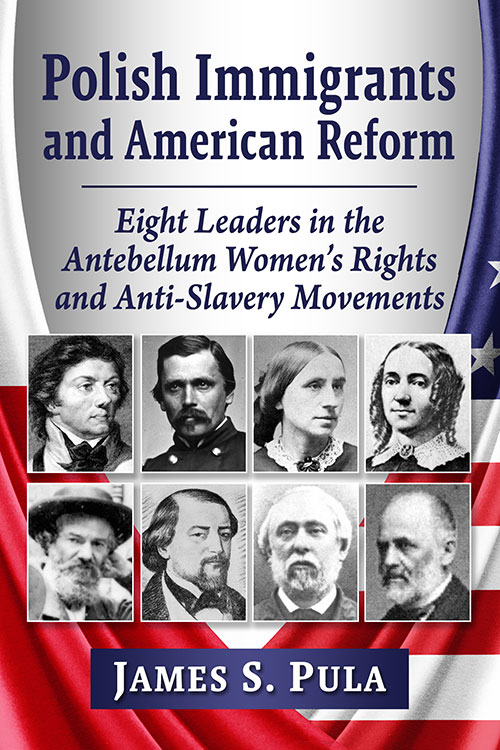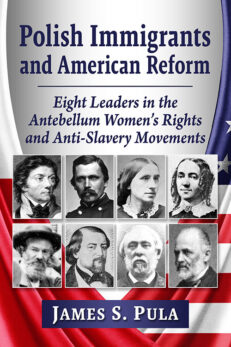Polish Immigrants and American Reform
Eight Leaders in the Antebellum Women’s Rights and Anti-Slavery Movements
$49.95
In stock
About the Book
Between the American Revolution and the Civil War, two of the most persistent themes in American history were immigration and the growth of reform movements, among them women’s rights and the antislavery crusade. The front ranks of these movements were swollen with recent arrivals.
Eight individuals of Polish ancestry made noteworthy contributions to the betterment of women’s status in the U.S. and to the eradication of human bondage. This collection of biographical articles provides their personal background information, explanation of their contributions, commentary by their contemporaries and historical interpretation of their significance.
About the Author(s)
Bibliographic Details
James S. Pula
Format: softcover (6 x 9)
Pages: 194
Bibliographic Info: 20 photos, notes, bibliography, index
Copyright Date: 2023
pISBN: 978-1-4766-9191-6
eISBN: 978-1-4766-4963-4
Imprint: McFarland
Table of Contents
Preface 1
1. Setting the Context: Antebellum Reform and the Growing Nation 5
2. “Giving them liberty”: Tadeusz Kościuszko 22
3. “Devoted to Universal Liberty”: Thomas Lewinski 31
4. “The noblest deed in a hundred years”: Włodzimierz B. Krzyżanowski 43
5. “From my youth I have dreamt of freedom”: Jan Józef Tyssowski 53
6. “To work for the elevation of woman”: Marie Elizabeth Zakrzewska 60
7. “I will not be silent”: Michael Heilprin 74
8. “Not as a gift of charity”: Ernestine Potowska Rose 82
9. “The curse of America”: Adam Gurowski 107
10. “What is liberty without equality of rights”: Conclusions 121
11. Documents 131
Kościuszko Issues the Połaniec Manifesto 131
Lewinski Supports the Prospectus for The True American 133
Krzyżanowski Opposes the “Slave Dogma” 135
Tyssowski Issues the Kraków Manifesto 136
Marie Zakrzewska Reflects on the Gender Difference in Names 138
Michael Heilprin’s Reply to Rabbi Raphall 142
Ernestine Potowska Rose Promotes Women’s Rights 149
Adam Gurowski Criticizes Slavery in America 155
Chapter Notes 159
Bibliography 173
Index 181





